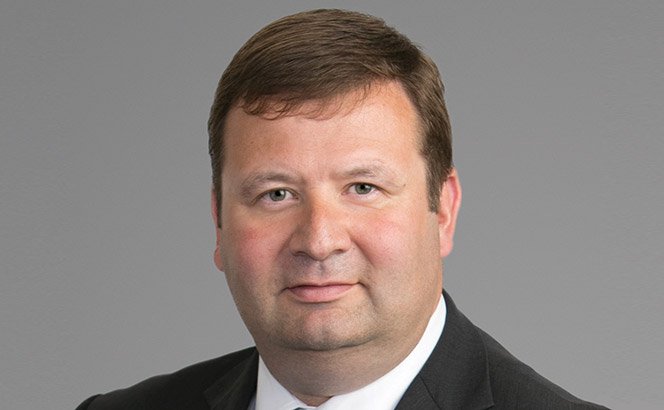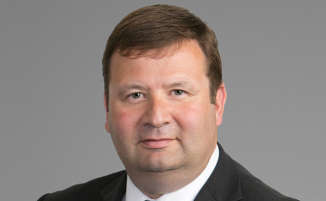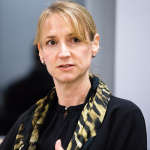K2 Intelligence’s Darren Matthews on what successful asset search and recovery looks like
Understanding the form, value and recoverability of an adversary’s assets is an essential part of legal strategy in any dispute. What may appear relatively simple – locating material assets and determining their value – invariably turns complex when assets are held through multi-level corporate structures layered over multiple jurisdictions. Methods used to hide assets are becoming more sophisticated and asset-recovery experts must keep up to date with the latest asset-searching techniques, practices and technologies. Understanding the form, value and recoverability of an adversary’s assets is an essential part of legal strategy in any dispute. What may appear relatively simple – locating material assets and determining their value – invariably turns complex when assets are held through multi-level corporate structures layered over multiple jurisdictions. Methods used to hide assets are becoming more sophisticated and asset-recovery experts must keep up to date with the latest asset-searching techniques, practices and technologies.
Getting the job right has significant implications. Armed with accurate information about an adversary’s assets, lawyers can gauge whether to litigate and accurately assess the likelihood of recovery or settlement. Once litigation begins, detailed knowledge of an adversary’s assets can assist in securing freezing orders to ensure that when an award is received, recoverable assets have not mysteriously disappeared. And when the case’s ultimate goal is to generate a payment of some kind, knowing the full extent of an adversary’s assets can help a legal team develop a recovery approach that can influence legal strategy.
Asking the right questions
When embarking on an asset trace, it is essential to start by establishing the objectives of the search and then build the strategy accordingly. Is the client looking to assess the viability of recovery if it pursues a legal claim or to enforce an existing decision? Are there concerns about the potential adversary hiding funds or dissipating assets? Setting forth the goal will influence many of the key questions an asset trace must answer:
- What are the adversary’s assets?
- In what jurisdiction(s) are they located?
- How liquid are they?
- What is their value?
- What is the ownership structure?
- Are the assets recoverable? If so, how can they be recovered?
- Are we ready to apply for a freezing order?
- Are other parties seeking to make a claim?
A recipe for success
Rapid advances in technology and forensic methods – not to mention the boundless ingenuity with which people and companies endeavour to hide their assets – have made asset searching increasingly sophisticated and complex, requiring a multifaceted approach that includes jurisdictional knowledge, data analytics, and specialised industry and regional expertise.
Jurisdictional knowledge. One of the most important of these initial questions concerns jurisdiction. While judgment enforcement and recovery are seldom easy, the likelihood of success tends to be directly proportional to local legal process and the country’s track record of recognising international court decisions. Hence, the recovery process is most transparent in the UK, the US, Canada and western Europe. By contrast, recovery can be difficult in Russia, China and certain countries in eastern Europe, the Middle East and Africa. Once the inquiry has established which jurisdictions are involved, investigators with regional expertise can help lawyers prioritise those in which recovery efforts are most likely to be successful.
Particularly when searching for large-value assets internationally, it is imperative that asset searches have on-the-ground resources that speak the local language and understand the country’s legal system, business practices and culture. For instance, K2 Intelligence’s global asset-searching team was charged with the enforcement of a judgment against a South-East Asian company. Due to the team’s international network, we were able to locate and seize the company’s shipping vessels in a European port.
Data analytics. Regardless of jurisdiction, investigators often must get creative in sifting through large amounts of information to uncover patterns in the way corporate structures are set up, and mechanisms through which assets are acquired and held. In a recent K2 Intelligence asset-tracing case, for example, we searched for a target’s assets and exposed a pattern in which the target had set up pairs of companies to own real estate. This led us to look for further examples and, upon extrapolating this pattern to other jurisdictions, enabled us to find significant assets in those areas.
Ultimately, a successful asset search is a matter of finding the right dots and connecting them to prove ownership and achieve recovery. The best experts not only are adept at exploiting existing technologies and techniques toward these ends, but also take it upon themselves to devise new applications that stretch the technologies’ usefulness even further.
Specialisation. We’ve always believed that the stakes involved in tracing and recovering assets are so high that to do the job properly requires a team of experts with specialised skills. Success in locating and recovering different types of assets relies on different skillsets and backgrounds coming together: accountants, real estate experts, professional investigators, shipping professionals, international lawyers, bankers and social media analysts – even experts in art and antiquities.
In another case we worked on, the target defaulted on a debt. We seized an asset that, while of lesser monetary value, was of critical business importance to the target, which served to encourage negotiations and enable our client to recover the debt in full. Without the in-depth knowledge our investigators had of the industry in which the target operated, we would not have been able to understand the impact of that particular asset on the business.
***
A trusted partner
K2 Intelligence partners with law firms and corporations on the world’s largest, most challenging and most confidential asset searches. Close co-ordination with legal teams and their overall strategies is essential to success. Our dedicated asset search and recovery team has decades of experience successfully conducting international asset searches, using cutting-edge technology and data analytics to help our clients and partners reach their objectives. With capabilities in more than 100 countries, we know how to work locally while thinking globally.

For more information, please contact:
Darren Matthews, executive managing director and regional head of EMEA
K2 Intelligence
Albemarle House
1 Albemarle Street
London W1S 4HA
T: 020 7016 4213













